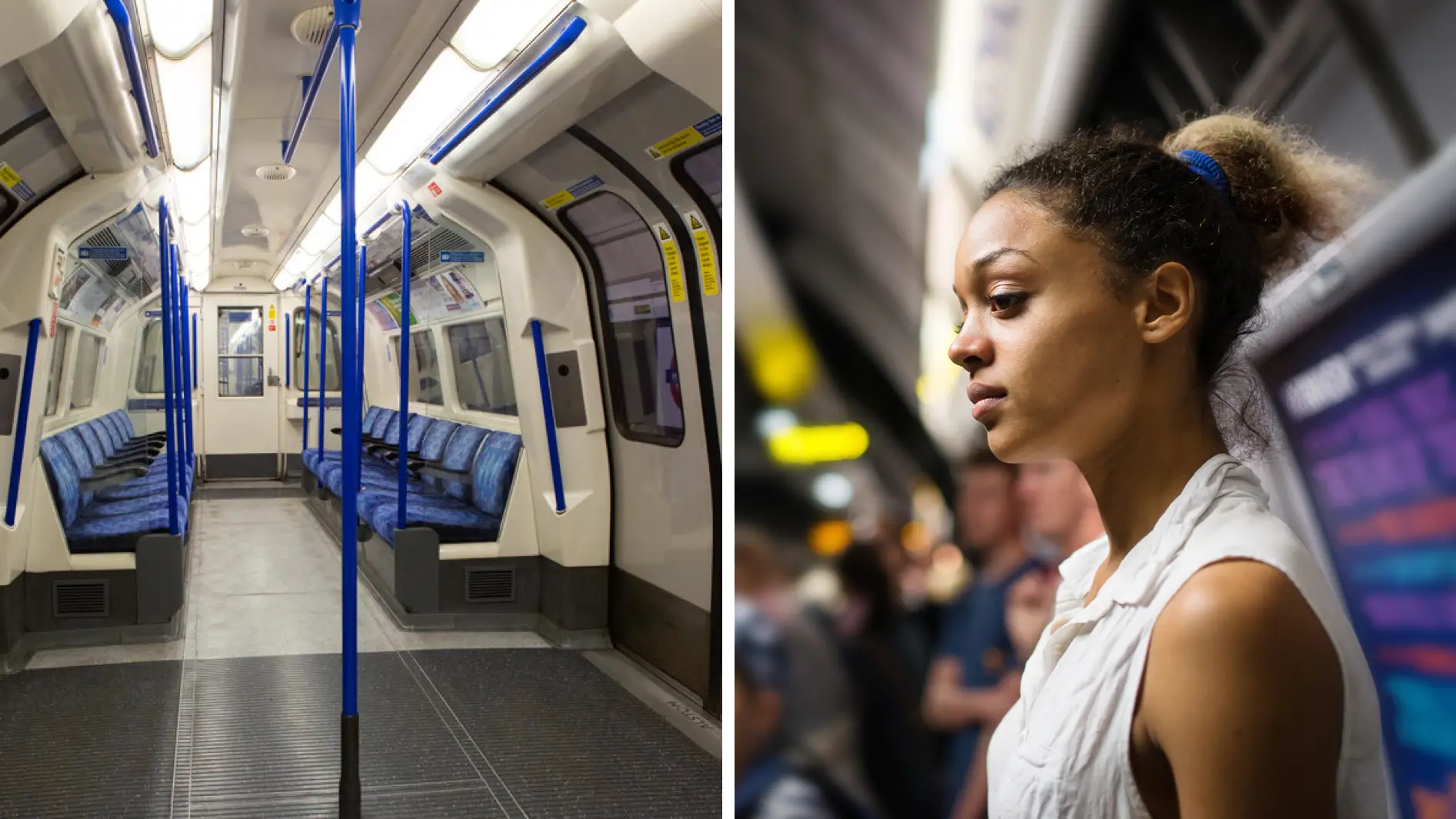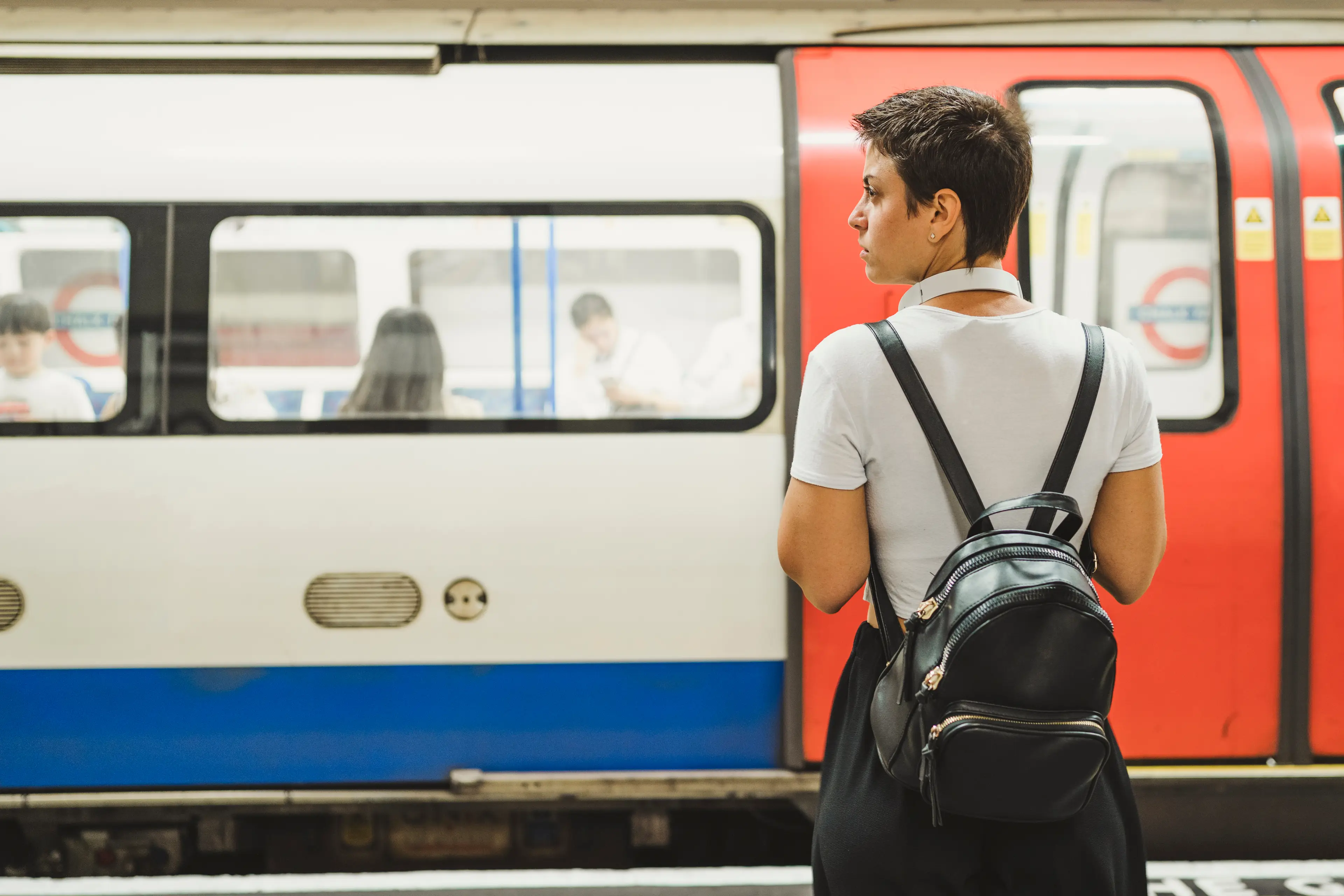
Maybe you’ve brushed it off as just a normal part of life. Maybe you’ve seen someone else being hassled and felt unable to help. Whatever your experience of sexual harassment, we’re here to remind you that it isn’t ok and it shouldn’t be tolerated. It's easy to feel powerless in these situations; not knowing what to do or how to help others.
Public transport is a unique environment where hundreds of strangers come together, often packed tightly during rush hours, with many passengers actively tuning out of their environment.
To tackle incidents of sexual harassment on its network, Transport for London (TfL) has launched a new campaign calling on bystanders to support their fellow passengers. Working alongside the British Transport Police, Metropolitan Police, organisations working to end violence against women and girls and other partners, TfL is aiming to inform people on what sexual harassment is, help bystanders understand what they can do, and encourage reporting.
71% of women said they had experienced sexual harassment in public spaces, according to a UN Women Study, so sadly many have learned to tolerate what they consider to be ‘lower level’ harassment, and even accept that this is just something that happens.
Advert

Sexual harassment in these spaces can include (but isn't just) intrusive staring of a sexual nature, making sexual comments or gestures, touching or pressing up against someone, flashing or ‘up-skirting’. These behaviours are harmful and they shouldn’t be accepted.
TfL is encouraging passengers to look out for one another whilst travelling throughout their network. A report conducted by London Travel Watch found that 63% of people would feel more comfortable responding to a crime if they had more information on the best way to help. And so, TfL and its police partners have released some guidance on how to be an active bystander.
It's not about policing the network or putting yourself in harm's way. In emergencies, you should always call 999. But for other situations, it's about knowing what you can do if you see something that doesn't look right.
1. Distract with a question
If you feel confident and safe to do so, you could speak to the person being targeted, ignoring the perpetrator. Asking a small question such as ‘do you have the time?’ or ‘what’s the next stop?’, can provide a distraction and help to defuse the situation.
2. Document and report what you see
Make a note of what is happening, where you are (what line, station, bus number or tube/train carriage number), what time it is, what the perpetrator looks like, what they’re wearing and any other important details. Reporting what you witness helps with the investigation and can stop it happening to someone else. Use these details to report what’s happened. For tube and rail services, text British Transport Police on 61016 or by using the Guardian Railway app. For bus services, call the Metropolitan Police on 101 or online at met.police.uk.
3. Make sure they’re okay
Following an incident, checking in with the person who has been targeted is a powerful thing to do. Assure them that what happened isn’t okay, see if there’s anything you can do to help and let them know that you will report the incident too. This can make them feel less isolated and more confident to report it themselves.
TfL supports their policing partners to investigate all incidents of sexual harassment on the public transport network, so it’s absolutely crucial that these incidents are reported and there is a record of what happened. With more information, the police can build a profile of the perpetrator and stop it happening again. Anything bystanders can do to provide more information is invaluable in terms of holding offenders to account.
Alongside this, TfL has introduced other measures to combat sexual harassment including training staff to support customers affected by these crimes and a huge network of around 70,000 CCTV cameras, as well as staff body cams. Plus, they are continuing to engage with organisations working to end violence against women and girls to improve their approach to tackling sexual harassment.
As part of the campaign research, TfL consulted with activist Zan Moon who commented: "Violence against women is present in all corners of society including public transport, so I welcome the launch of this important campaign prioritising the role of bystanders and active intervention. We all have a responsibility to challenge everyday sexism, and offering a helping hand in an incident you’ve witnessed is a great place to start. You don’t have to wave banners and march at protests to make a difference, sometimes the smallest gestures of kindness can make the biggest change.”
If you've witnessed an incident of sexual harassment, you should report what has happened. All reports, even about past events, are taken seriously. Report what you've seen to:
For tube and rail services contact British Transport Police: Text 61016 or use the Railway Guardian app
For bus services, contact Metropolitan Police: Call 101 or online at met.police.uk.
Report anonymously via Crimestoppers: call 0800 555 111
If you've been affected by any of the topics in this article and need support, you can contact:
A national charity dedicated to helping anyone affected by crime – not just victims and witnesses, but friends, family and anyone else caught up in the aftermath.
24/7 helpline:
08081689111
A national charity offering confidential help, advice and a range of Rape Crisis Centres around the UK.
A national charity providing advice and support to members of the LGBT community.
LGBT+ Domestic Abuse Helpline:
0800 999 5428
LGBT+ Hate Crime Helpline:
020 7704 2040
A national charity supporting men who have been raped or sexually assaulted.
Chat sessions available Mon-Fri 12-8pm
A specialist sexual violence and abuse charity led by the needs of its clients.
Safeline Helpline:
01926 402 498
Refuge supports women, children and men with a range of services, including refuges, independent advocacy, community outreach and culturally specific services.
24hr Helpline:
0808 2000 247
Women’s Aid is a national charity working to end domestic abuse against women and children.
Chat service operating
Mon-Fri 8am-6pm
Sat-Sun 10am-6pm
